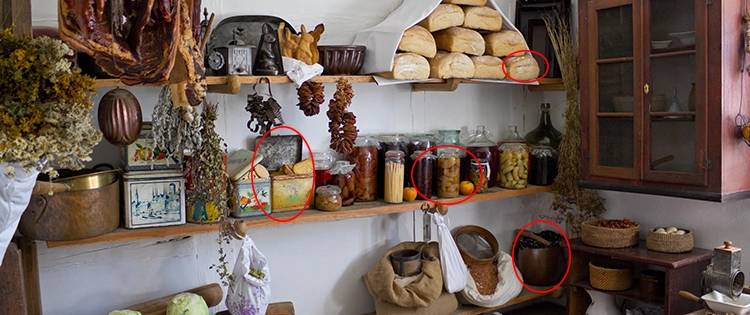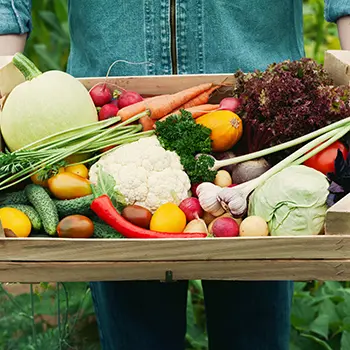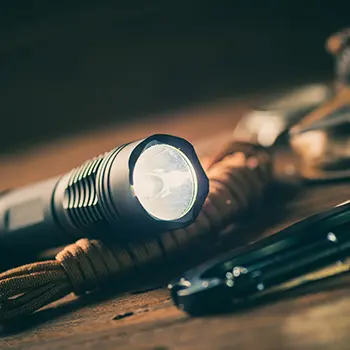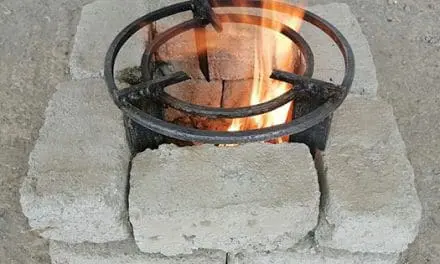We’ve all been exposed to the haunting tales and stark images of The Great Depression, prompting thoughts that such a calamity couldn’t occur in the 21st century.
While optimism is admirable, we mustn’t take our current lifestyle for granted.
Rather than complacency, acknowledging the possibility of another economic downturn and adopting a proactive approach is prudent.
As we face the potential threat of another great depression, this guide will serve as an ultimate stockpiling resource, clarifying what constitutes a “great depression” and why stockpiling is a vital contingency plan.
What is a Great Depression?
Before delving into the specifics of stockpiling, it’s essential to understand what constitutes a “great depression.”
This term refers to a prolonged and severe economic downturn characterized by widespread unemployment, a significant decline in industrial and economic activity, and a general loss of confidence in the financial system.
The most well-known example is the Great Depression of the 1930s, which followed the devastating stock market crash of 1929. During this period, the United States and many other countries experienced:
- Soaring unemployment rates, with approximately 25% of the American workforce out of a job
- A staggering 50% decline in industrial production
- Massive drops in prices, incomes, and profits, leading to widespread poverty and homelessness
While the likelihood and severity of the Great Depression remain uncertain, it’s better to be prepared than caught off guard.
Why Stockpiling is Crucial
During economic turmoil, supply chains can become disrupted, and essential goods may become scarce or unaffordable for many.
That’s where stockpiling comes into play – by having a well-stocked reserve of necessary items, you can insulate yourself and your family from the potential hardships of depression.
Here are some compelling reasons why stockpiling is crucial:
- Ride-Out Shortages and Financial Instability: During a depression, basic necessities like food, water, and medical supplies may become challenging to obtain or prohibitively expensive. With a stockpile, you can ensure that your family has access to these essentials, even when supply chains are strained or your income is limited.
- Prepare for the Unpredictable: Economic depressions can be unpredictable, and their impacts can ripple through various aspects of society. By stockpiling, you’re creating a buffer against unforeseen circumstances, such as disruptions in utilities, transportation, or healthcare services.
- Gain Peace of Mind: The psychological benefits of stockpiling should not be overlooked. Knowing that you’ve taken proactive steps to secure your family’s well-being can provide a sense of security and control in an otherwise chaotic situation.
By being prepared, you’ll be better equipped to weather the storm and maintain a sense of normalcy amidst the uncertainty.
Top Things to Stockpile for a Depression
Now that you understand the importance of stockpiling, let’s dive into the specific items you should consider accumulating.
Remember, the goal is to have a well-rounded stockpile that covers your essential needs during a depression, while also accounting for potential long-term scenarios.
Food and Water Supplies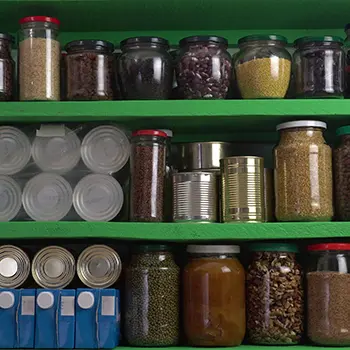
Food and water are the most fundamental necessities for survival, and securing an adequate supply should be your top priority. Here are some key considerations:
Non-Perishable Foods with Long Shelf Lives:
- Canned goods (vegetables, fruits, beans, soups, etc.)
- Dried grains (rice, oats, pasta, etc.)
- Powdered milk and shelf-stable dairy products
- Nuts, seeds, and nut butter
- Dehydrated or freeze-dried meals
Quantity: Aim to stockpile enough non-perishable food to sustain your household for at least 6 months, if not longer. The exact amount will depend on the number of people in your household and their dietary needs.
Water:
- Store at least 1 gallon of water per person, per day, for drinking, cooking, and hygiene purposes.
- Consider water purification methods (filters, tablets, etc.) in case access to clean water is compromised.
- Learn to safely store water for extended periods.
Growing Your Own Food:
- Stock up on seeds for a variety of vegetables, herbs, and fruits.
- Acquire essential gardening tools (shovels, hoes, watering cans, etc.).
- Learn basic gardening and food preservation techniques.
Medical and Sanitation Supplies
During a depression, access to healthcare and medical supplies may be limited, making it crucial to have a well-stocked first aid kit and other essential items on hand.
First Aid Kit:
- Bandages, gauze, and antiseptic solutions
- Over-the-counter medications (pain relievers, antihistamines, etc.)
- Prescription medications (if applicable)
- Medical supplies (scissors, tweezers, thermometer, etc.)
Hygiene and Sanitation:
- Soap, shampoo, and toothpaste
- Feminine hygiene products
- Toilet paper and paper towels
- Bleach and other disinfectants
Backup Options:
- Consider stocking up on natural remedies and alternative medicine options.
- Learn basic first aid and hygiene practices.
Maintaining cleanliness and good hygiene will be crucial during a depression, as access to healthcare facilities may be limited, and the risk of illness could be higher due to potential disruptions in sanitation services.
Emergency Essentials
In addition to food, water, and medical supplies, there are several other essential items that should be part of your stockpile to help you navigate emergencies during a depression.
Lighting and Heat Sources:
- Flashlights and batteries
- Candles and matches/lighters
- Portable heaters (if applicable)
Communication and Power:
- Emergency radio (battery-powered or hand-crank)
- Power banks and solar chargers for electronic devices
Tools and Repair Items:
- Basic tool kit (hammers, wrenches, screwdrivers, etc.)
- Duct tape, rope, and tarps
- Sewing kit and basic repair supplies
Having these essentials on hand can help you stay informed, maintain communication, and address basic repair and maintenance needs during a depression, when access to professional services may be limited.
Financial Preparedness
While stockpiling physical goods is crucial, it’s equally important to prepare financially for the potential economic hardships of a depression. Here are some strategies to consider:
Diversify Assets and Liquid Cash Savings:
- Invest in a diversified portfolio of assets, including precious metals, real estate, and other tangible assets.
- Maintain a substantial cash reserve in case access to banking services is disrupted.
Barter Items of Value:
- Stockpile items that may be in high demand and could serve as valuable barter items, such as alcohol, cigarettes, ammunition, and other luxury goods.
- Consider acquiring skills or services that could be traded for essential items.
Precious Metals:
- Gold and silver have historically maintained their value during economic crises and can serve as a hedge against inflation or currency devaluation.
By diversifying your assets and accumulating items that may hold value during a depression, you’ll be better positioned to navigate potential financial challenges and secure necessary goods and services.
Home Defense
Unfortunately, during times of economic instability, the risk of civil unrest and criminal activity may increase. As such, it’s important to consider home defense measures as part of your stockpile.
Self-Defense Tools:
- Research and acquire legal self-defense tools appropriate for your area, such as pepper spray, personal alarms, or (if legally permitted) firearms, and appropriate training.
Home Security:
- Reinforce doors, windows, and other entry points to deter potential intruders.
- Consider installing a home security system or motion-activated lighting.
Community Support:
- Foster relationships with neighbors and form a support network for mutual aid and protection.
Skills and Knowledge
While physical stockpiling is essential, acquiring relevant skills and knowledge can be just as valuable during an economic depression. These will not only enhance your self-sufficiency but also contribute to your overall preparedness.
Survival Skills:
- First aid and emergency medical training
- Fishing, hunting, and foraging techniques
- Wilderness navigation and camp craft
Homesteading Skills:
- Gardening and food preservation (canning, dehydrating, etc.)
- Animal husbandry and beekeeping
- Basic carpentry, plumbing, and electrical repairs
Entertainment and Morale:
- Books (fiction, non-fiction, reference materials)
- Board games and puzzles
- Musical instruments and art supplies
- Physical fitness resources (yoga, calisthenics, etc.)
Keeping your mind engaged and your spirits high will be crucial during the challenges of depression. Having entertainment options and creative outlets can provide much-needed respite and help maintain a sense of normalcy.
How to Build Your Stockpile
Now that you have a comprehensive understanding of what to stockpile, it’s time to focus on the practical steps of building and maintaining your stockpile.
Start Slowly and Build Over Time: Rome wasn’t built in a day, and neither should your stockpile be. Begin by prioritizing the most essential items and gradually expand your stockpile as your budget and space allow. This approach will prevent you from becoming overwhelmed or making impulsive purchases.
Storage and Rotation Considerations:
- Proper storage is crucial for maximizing the shelf life of your stockpile items.
- Follow recommended storage guidelines for each item (temperature, humidity, etc.).
- Implement a rotation system to ensure older items are used first and replaced with newer stock.
Remember, stockpiling is not about succumbing to fear or paranoia; it’s about taking proactive steps to ensure the well-being and self-reliance of you and your loved ones. Having the right supplies on hand can provide a sense of security and peace of mind, knowing that you’re ready to face whatever uncertainties the future may hold.
Survival Skills You Should Learn From The Amish
How To Store Food Without Electricity That Can Last Up To A Year (Video)
What Livestock My Grandparents Raised During The Great Depression

